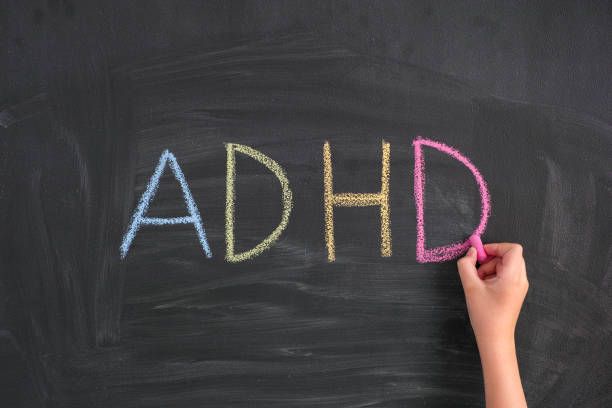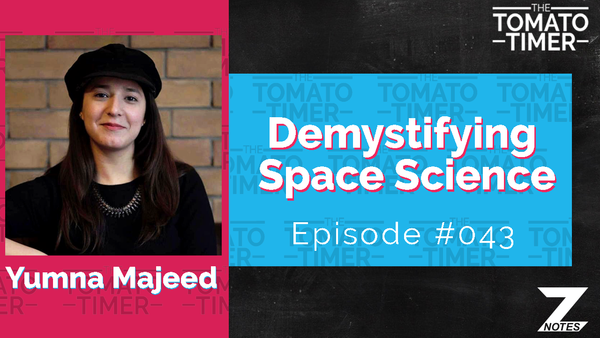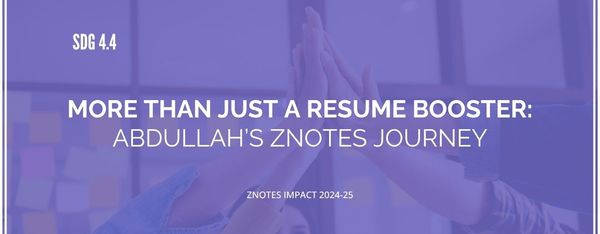Inside the ADHD Mind: Thriving in the Academic World
Did you know that this month is ADHD Awareness Month? While you may have noticed people on social media casually mentioning the term, it's crucial to truly understand what ADHD is and how profoundly it impacts individuals, especially those who are students. So, let's dive into understanding ADHD and explore how people affected by it perceive and experience the world differently than the rest of us. Furthermore, in this article, we'll also uncover what can be done by us to offer meaningful support along their journey.
According to the Centers for Disease Control and Prevention (CDC), ADHD is one of childhood's most common neurodevelopmental disorders, typically first diagnosed during this period and often persisting into adulthood. It's characterized by symptoms such as trouble paying attention, impulsive behaviours, and even by excessive activity.
ADHD's Influence on Student Life
Students with ADHD, characterized by impaired executive functioning, may encounter additional difficulties, especially during their academic endeavours, including:
- Expressing dissatisfaction with their academic performance and grades.
- Facing challenges in initiating and completing assignments.
- Struggling with disorganization and difficulty remembering tasks.
- Encountering trouble when trying to memorize information.
- Having difficulty tackling lengthy essays or complex math problems.
- More commonly, poor time management issues that often lead to erratic daily routines. This can manifest as difficulty meeting deadlines, challenges in planning for the future and struggling to effectively prioritize tasks.
However, one should remember that the impact of ADHD goes beyond academic performance; it profoundly affects a child's emotional and physical well-being. Young people grappling with ADHD often experience feelings of being lost, confused, and occasionally misunderstood as they navigate these daily challenges. This emotional turmoil can hinder their participation in social gatherings and school events, potentially causing them to lag behind in various aspects of life. However, it's crucial to recognize that education should be a universal right, accessible to all, regardless of boundaries, skin colour, race, or disabilities. Education, like an unending stream, should flow freely for every child, ensuring that no one is left at a disadvantage due to their unique circumstances.
ADHD and School: Tackling the Challenges
Studying can be an overwhelming task for students with ADHD, but with the right strategies and guidance, one can overcome any challenge.
1. Mastering Time Management: Creating a schedule and learning time management can help you stay on track and avoid feeling overwhelmed in the future. Take charge by listing your tasks and activities, planning your day, and ensuring a more organized and stress-free future.
2. Battling the Elephant in the Room (Yes, we're talking about procrastination): While procrastination is something that affects each and every student, young individuals with ADHD have a harder time avoiding the procrastination trap and often find themselves as victims of the same. To avoid falling into the pothole of procrastination, divide your tasks into smaller chunks and take small breaks in between study sessions. Make use of productivity apps such as Pomodoro and Forest to help you manage your time when you feel like you need that extra help.
3. Practice mindfulness and meditation: Sometimes, you may feel stuck in an endless cycle of stress and desperation. During such times, it's crucial to take care of your mental health. If you find the workload overwhelming, try engaging in mindfulness activities such as yoga or running to clear your mind. Those interested could even try a relaxation or meditation routine to truly find their own zen.
4. Create a reward system: After each study session, reward yourself with a daily dose of dopamine, whether it's watching a Netflix show you enjoy or treating yourself to a piece of chocolate. It's important to appreciate yourself to stay motivated for the journeys to come.
5. Talk it out with an adult or your friends: Communicating your feelings and concerns with a trusted adult or your friends could be crucial in your journey of tackling ADHD. It not only helps relieve feelings of despair and helplessness but also makes you feel heard and less alone, motivating you to continue your academic journey and sow the seeds of success.
Supporting Peers With ADHD
You can be a great ally to your friends with ADHD by creating an inclusive and judgment-free atmosphere where they feel valued. To make this happen, you can adopt some simple practices to support those with ADHD:
- Get Informed: Take some time to learn about ADHD and how it affects people. This will help you better understand their needs and be a more supportive friend.
- Ditch the Stereotypes: Let go of stereotypes and preconceived notions. Not all individuals with ADHD are the same, so avoid making assumptions.
- Lend a Helping Hand: If you notice your friends with ADHD struggling, offer a helping hand. Sometimes, a little support makes a big difference.
- Spread Awareness: Use your voice and social media to spread awareness about ADHD and its unique challenges. Your own actions go a long way, always remember that!
In conclusion, ADHD is a common mental condition that touches the lives of countless children and young individuals worldwide. As we embrace October, designated as ADHD Awareness Month, let's embark on a journey of greater sensitivity and awareness. By understanding conditions like ADHD, we not only celebrate neurodiversity but also extend a helping hand to those facing its unique challenges.
Imagine living in a society where diversity is valued, inclusivity is practised, and people are willing to support one another. In such a society, ADHD would not be seen as a barrier but rather as a unique aspect of human diversity. Let's become the agents of change, create awareness, and promote a society that is more accepting and compassionate. By working together, we can improve the lives of those impacted by ADHD and support them towards a better future. It's time to embrace neurodiversity and offer help to those who may be struggling. Let's put our awareness into practice and make our future more encouraging for everyone.




